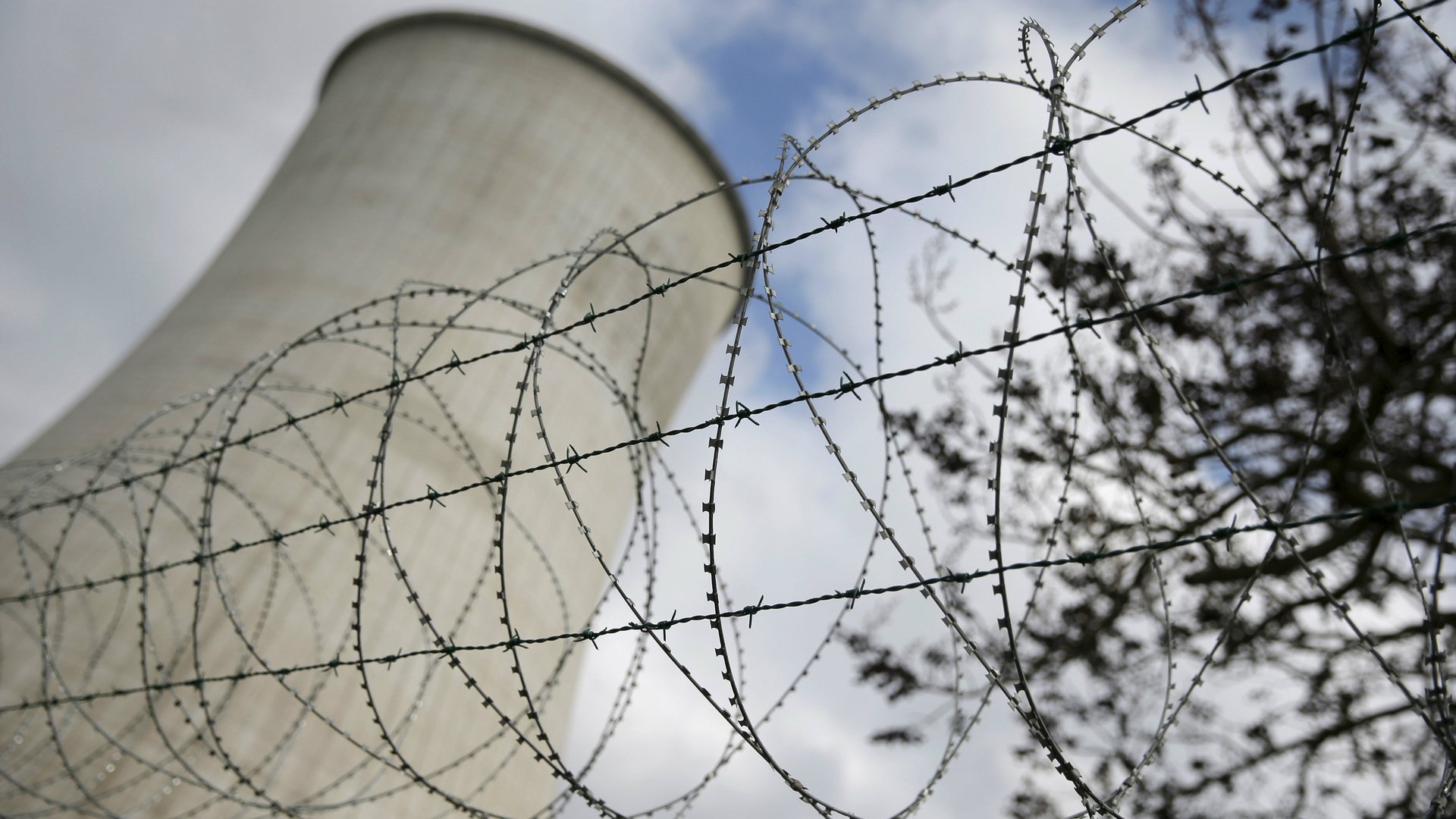Fearing a nuclear terror attack, Belgium is giving iodine pills to its entire population
Belgium is giving everyone living within a 100-km (60-mile) radius of its nuclear reactors an iodine pill in case of a nuclear calamity—which turns out to be everyone in Belgium.


Belgium is giving everyone living within a 100-km (60-mile) radius of its nuclear reactors an iodine pill in case of a nuclear calamity—which turns out to be everyone in Belgium.
The Belgian health minister had previously issued pills as proactive protection in case of a nuclear accident to everyone living within 20km of the country’s nuclear power plants but that will now be expanded and include the country’s entire 11-million-strong population.
Iodine pills help protect the thyroid gland from absorbing radioactive iodine, which could lead to thyroid cancer.
It’s not that unusual to get these pills if you’re living near a nuclear site. Last year, residents in the East End of Toronto were given iodine pills as a precautionary measure.
But this latest Belgian move follows growing concerns over the safety of the country’s two aging nuclear power plant at Tihange, near Liege, and Doel, near Antwerp, following the events in Brussels this year and Paris last year. Video footage of a Belgian nuclear plant was discovered in the apartment of a suspected extremist with links to the Paris terror cell (paywall).
Just days after the deadly attacks at Brussels airport and its subway system killed 32 people, authorities took security badges away from several workers at one of the plants. There are growing fears that terrorists could exploit the vulnerability of Belgium’s nuclear plants and go on to create some sort of “dirty bomb” from radioactive materials.
Germany has previously called on Belgian authorities to shut down these two nuclear power plants, which resides near their shared border. Belgium authorities turned down Germany’s request, explaining there was no need “from a nuclear safety point of view.”
But it’s not just Germany, other neighboring countries, including the Netherlands (paywall), have complained about Belgium’s nuclear reactors. Some are particularly concerned with Belgium’s decision to extend the lifetime of Doel to 2025.
The Doel 3 and Tihange 2 reactors were taken offline in 2012 (link in Flemish) when defects were discovered in the reactor’ pressure vessels. Both reactors were restarted last year, following approval from the Belgian Federal Agency for Nuclear Control.
The Belgian health ministry did not immediately respond to Quartz when reached for comment.